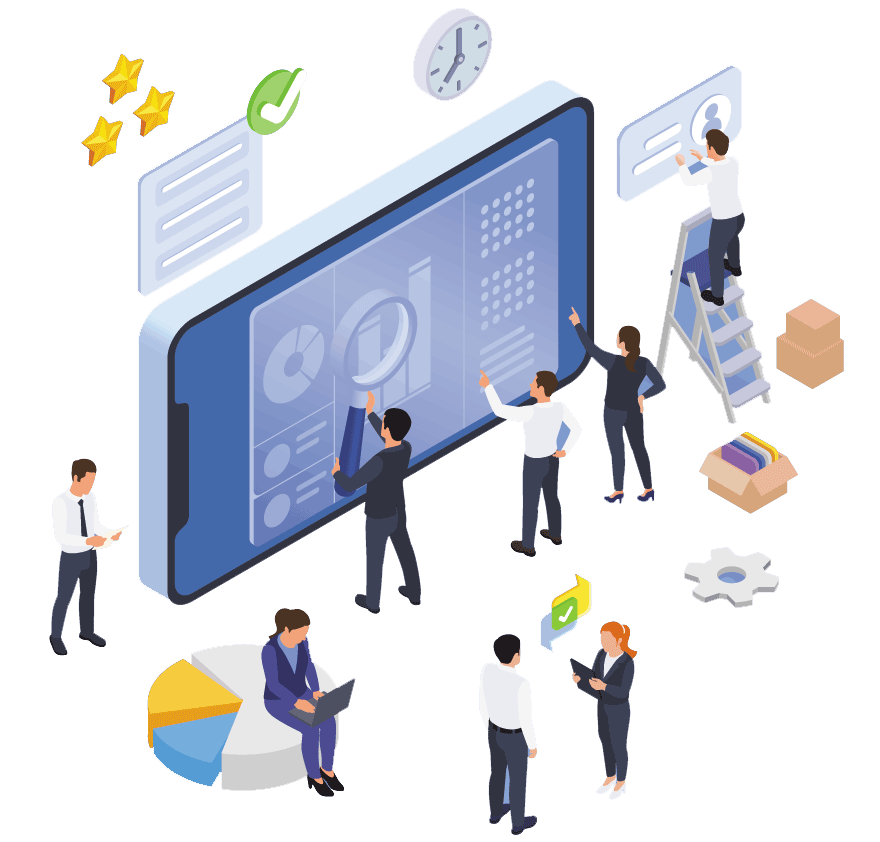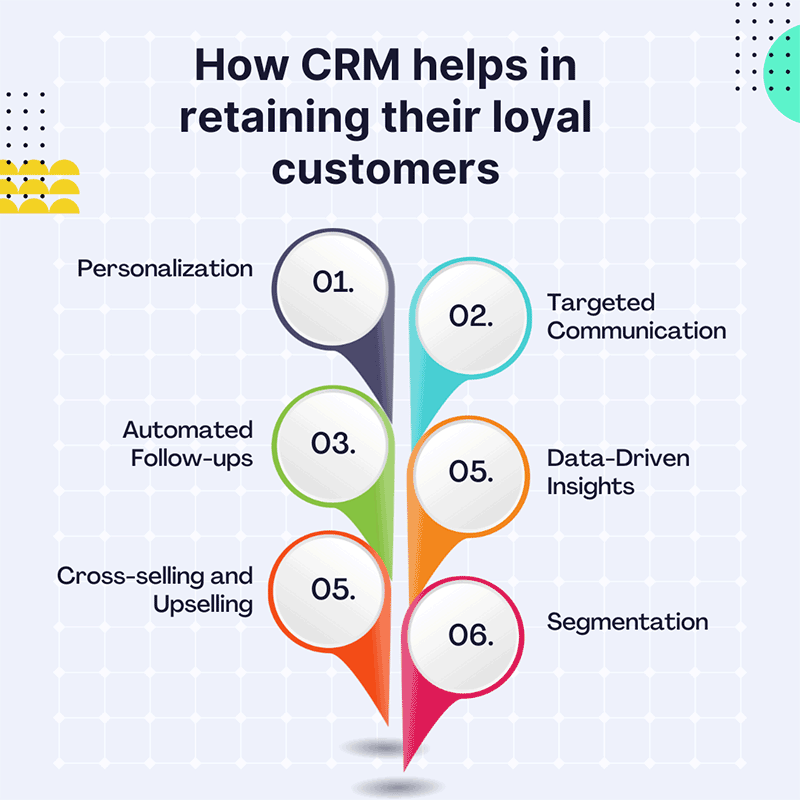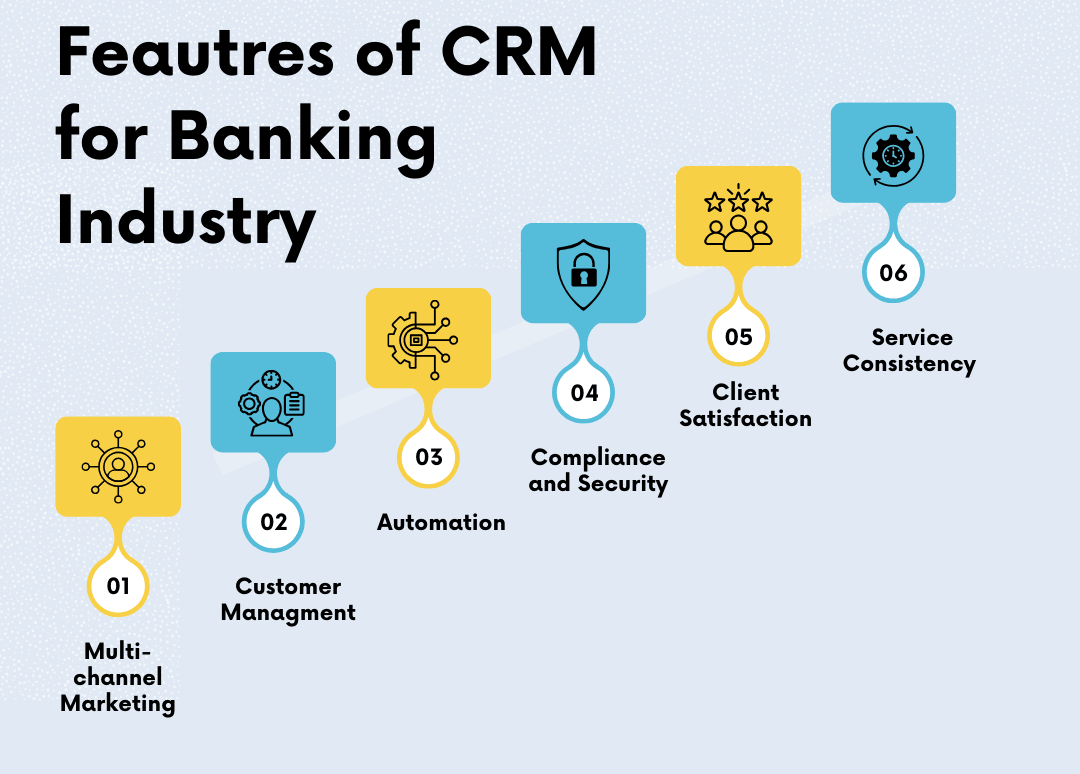What is CRM?
Customer relationship management, or CRM, is the secret ingredient that organizations or entities utilize to establish, maintain, and improve their relationships with customers on a continuous basis. It's more than just a piece of software or a tool; it's a whole approach that enables businesses to understand better, interact with, and serve their consumers.
For a more specific understanding of CRM, consider it the hub of your company's operations, the area where all data and actions pertaining to customers are gathered. You may get the whole picture of your client interactions through this primary portal.

Importance of CRM in Banking
The importance of CRM plays a vital role in various prospects; any successful company knows that its customers are the lifeblood of its success. CRM software is a technology that serves entities as an essential partner in their quest to engage with consumers on a deeper level.
Think of CRM software as your dependable companion who has access to a wealth of customer data. It's like having a personal assistant who is an expert on your clients. Data about client interactions, purchases, likes, and communication preferences is gathered and arranged in one single hub. Customer Retention is a constant activity that demands care and attention, much like nurturing a garden.
Customer relationship management (CRM) software is your go-to gardening tool in the digital era.
Let's see how it aids firms in retaining their loyal customers.
Personalization:
Picture your CRM as a database of all of your past contacts with customers. It keeps track of their preferences, purchases, and preferred forms of address. Businesses may modify their communications and offerings using this information. It's comparable to having a favorite neighborhood grocer who is familiar with your tastes and addresses you by name.
Targeted Communication:
A relationship's lifeblood is effective communication. CRM enables you to group your clients according to a number of factors. As a result, you may target the appropriate audiences with your messages and offers. It resembles having a discussion with every consumer and catering to their unique wants and needs.
Automated Follow-ups:
CRM handles recurring follow-up tasks, including reminding people to follow up, sending thank-you letters, and gathering feedback. Due to this, clients remain interested long after the transaction. It resembles sending a card of gratitude or a polite reminder without having to do any work.
Data-Driven Insights:
Using CRM is similar to having a crystal ball that can predict what your customers will do next. Businesses may make wise judgments by studying client behavior. It's similar to having a compass point you in the direction of the goods and services your clients want.
Cross-selling and Upselling:
CRM looks for possibilities to recommend additional items or upgrades. It's similar to a helpful waiter who recommends the ideal wine to combine with your dinner, improving your whole experience.
Every successful business is built on an understanding of the requirements and wants of its customers. CRM (customer relationship management) software is an effective tool that may give firms rich insights into these crucial facets. In this explanation, we'll look at how CRM helps companies better comprehend and meet client wants and requests.
Complete Customer Profiles:
CRM systems serve as a central hub for customer information. They gather and arrange data from a variety of touchpoints, including sales, marketing, customer service, and more. The full consumer profiles produced by this all-encompassing perspective include previous interactions, purchase history, preferences, and behavioral trends. It resembles maintaining a tidy dossier on each client.
Segmentation:
CRM enables consumer segmentation based on a variety of factors, like demographics, past purchases, or levels of participation. Businesses may customize their marketing and communication tactics for particular client groups thanks to segmentation. It is comparable to holding several events for diverse interest groups while making sure that each audience gets pertinent material.
Inventory management:
CRM may assist companies that sell products with better inventory management by keeping track of which products are in great demand and which are not. Customers will always locate what they need when they need it thanks to this.

CRM (Client Relationship Management) is a game-changer that delivers simplicity and efficiency to organizations by streamlining the management of client data. Consider CRM as your dependable digital helper who will revolutionize the way you manage client information.
First of all, CRM acts as a single location where all of your customer data may be orderly arranged. Think of it as a well-organized file cabinet where you can quickly access information about customers, interactions, past purchases, and communications. Everything you need is in one location, so you won't have to waste time looking among dispersed files.
Even more striking is how routine duties are automated by CRM. Imagine having a personal assistant that handles everyday tasks like data entry, arranging appointments, and email follow-up. This automation not only saves you time but also lessens the likelihood that mistakes will be made.
CRM improves your ability to communicate. It provides capabilities for automating notifications, sending personalized emails, and even using chatbots to get speedy replies. This implies that your clients get timely, pertinent messaging, which enhances their overall impression of your company.
CRM also functions as your own personal data analyzer. You may extract important insights from consumer data with the aid of its powerful reporting and data analysis tools. You may use this data to guide your judgments regarding your marketing plans, sales techniques, and other business-related activities.
CRM systems are equipped to assist with workflow management as well. Workflows that may be customized make sure that tasks are given to the appropriate team members at the appropriate time. By doing this, bottlenecks are avoided, response times are slashed, and your operations function flawlessly.
The flexibility of CRM helps clients develop with it, whether you're a startup company or a large corporation. CRM adapts to your changing demands, ensuring that you can continue to handle your client data effectively as your business develops and your customer database expands.
CRM is, in essence, the secret to streamlining customer data management. Your data is centralized, processes are automated, communication is improved, analytics are enhanced, workflow management is supported, and it scales with your organization. With CRM at your side, you can concentrate on what matters most: fostering solid customer connections and advancing your company.
The featured image shows the summarized role of CRM
To increase revenue and keep a competitive edge in a market that is continually changing, the banking sector must improve sales and marketing performance.
Here, we'll look at how banks may use cutting-edge tactics and technology to accomplish this:
Multi-channel Marketing:
Today's consumers connect with banks through a variety of channels, such as websites, mobile applications, social media, and in-branch encounters. This is known as multi-channel marketing. Customers are guaranteed to receive consistent messaging and experiences across all touchpoints with a unified multi-channel marketing strategy. For a smooth customer experience, banks can employ CRM (Customer Relationship Management) systems to monitor and organize these interactions.
Automation:
Banks may automate repetitive marketing processes, such as email campaigns and lead nurturing, by using marketing automation solutions. Banks can interact with clients on a large scale while still preserving a human touch by automating these operations. For example, banks may create automated email campaigns to welcome new clients, offer financial education materials, or advertise pertinent goods and services.
Compliance and Security:
These two factors are crucial in the banking sector. Banks must make sure that all marketing and sales efforts respect legal requirements and safeguard client information. Serious repercussions might ensue if you don't do it. Building confidence with consumers and regulatory bodies requires investing in safe and legal marketing and sales practices.
Customer Satisfaction:
CRM enables banks to prevent issues before they arise by proactively identifying possible problems or indications of dissatisfaction. Banks can identify warning signs and take preventative measures to address issues before they get out of hand by keeping an eye on client interactions and transaction trends. The bank's dedication to ensuring client happiness is demonstrated by this proactive strategy.
Service Consistency Across Channels:
In the multi-channel banking world of today, service consistency is essential. CRM ensures that clients get the same degree of assistance and information whether they contact the bank over the phone, in person, online, through a mobile app, or over the web. A bank's reputation for reliability and consistent branding enhances customer loyalty.
Using CRM (Customer Relationship Management) to increase loan sales in the banking industry is a smart move that may have a big impact.

Here are some ways that CRM drives itself to boost loan sales:
Lead Nurturing:
Banks can automate lead nurturing procedures with the use of CRM solutions. CRM can launch automated responses when a potential borrower displays interest in a loan, whether through the bank's website, a branch visit, or a phone contact. These answers may take the form of follow-up emails, appointment reminders, or alerts to loan officers. By ensuring fast and regular engagement with leads, this automation raises conversion chances.
CRM systems provide resources for efficient pipeline management. CRM allows loan officials to monitor the status of loan applications at every stage, from the first inquiry through approval and distribution. This transparency makes sure that possible loans don't get lost in the system and that quick action is taken in the aftermath.
Referral Tracking:
CRM may assist banks in keeping track of customer recommendations and motivating current clients to recommend future loans. Offering rewards or discounts to clients who successfully recommend a borrower can encourage word-of-mouth advertising and boost loan sales.
Monitoring Loan Officer Performance &Training:
CRM may be used to teach and monitor Loan Officer performance. Banks can pinpoint areas for improvement and provide their sales personnel with specialized training by monitoring key performance indicators (KPIs) like conversion rates and response times.
Using Customer Relationship Management (CRM) solutions to enhance customer service with reporting and analytics in banking is a strategic move that may increase client happiness and loyalty.
Here are some ways that CRM reports and analytics help banks provide better customer service:
CRM's predictive analytics feature may foresee customer patterns and behavior. Banks can harness the power of predictive models to anticipate what consumers will need and take proactive steps to resolve any potential issues before they arise. For instance, the bank might give a short-term loan or credit line in advance if a predictive model predicts that a customer will likely have cash flow issues, indicating a proactive approach to customer care.
Resolution of Complaints:
CRM reports keep track of client's concerns and complaints. Analytics of CRM spots trouble spots or persistent issues. That enhances the bank's complaint resolution procedures and increases client satisfaction and retention by taking on these issues quickly and efficiently.
Conclusion:
CRM, or customer relationship management, is like the heart of the banking sector, keeping it alive and thriving. Finally, let's examine the significance of CRM and how it profoundly affects banks' relationships with their clients.
CRM is a superpower for banks. They can keep you satisfied by providing goods and services that are ideal for you. This keeps you coming back, which benefits both parties. Additionally, it enables them to identify any possible problems and take prompt action to resolve them, saving you the trouble.
CRM is about more than simply keeping customers satisfied; it's also about running a profitable business. By spotting possibilities to provide you with more useful services, it aids banks in boosting their revenue. CRM helps banks follow the rules and protect your data, so it's not just about the money.
CRM also improves the efficiency of all back-end operations. It lessens the tedious work, so bank staff can concentrate on what really counts - assisting you!

Last but not least, CRM keeps banks on their toes in a world that is constantly evolving. It enables them to change with the times and meet your changing needs. CRM, to put it briefly, isn't only a technological tool; it's also like the welcoming face of your bank. Your relationship with your bank is strengthened, which makes the financial world more welcoming and practical for everyone.
Discover how Salestown CRM can revolutionize the way banks operate in the digital age. Ready to experience the future of banking firsthand?
Whether you're a decision-maker in the banking sector looking to optimize customer relationships or a professional aiming to elevate your career, Salestown CRM has the solutions you need.
To witness the transformative power of our CRM platform, book a personalized demo with our experts. We'll show you how Salestown CRM can drive growth, enhance customer service, and streamline operations for your bank.
If you prefer to explore at your own pace, kickstart your journey with a free trial. Dive into the features and capabilities of Salestown CRM with no strings attached. Your path to a more efficient, customer-centric, and successful banking experience begins here.
